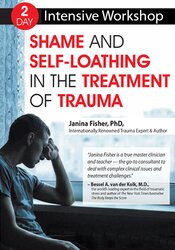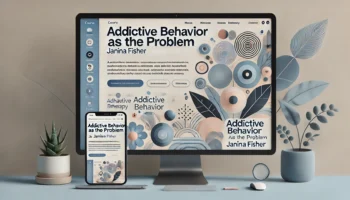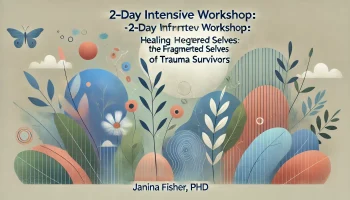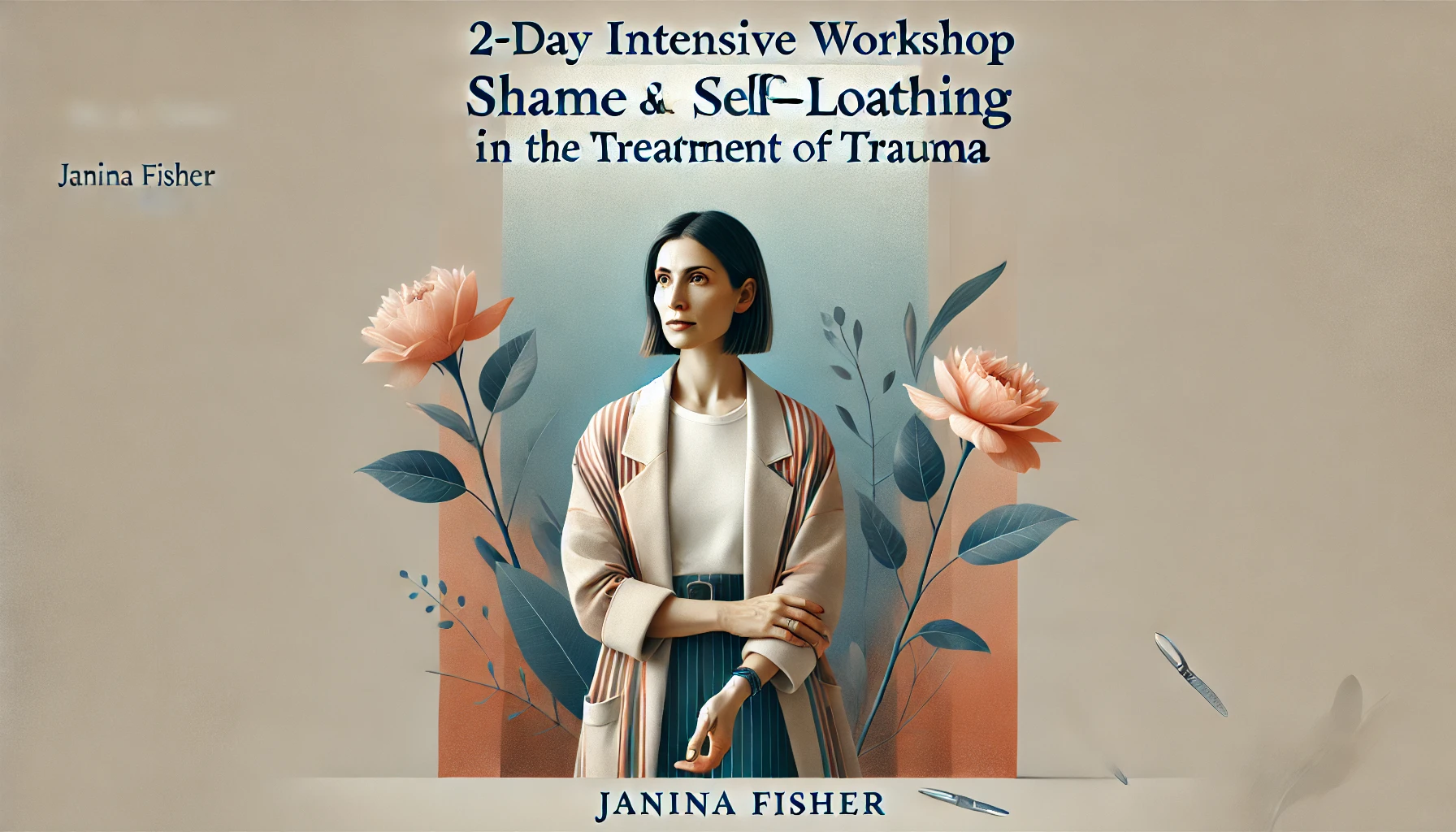2-Day Intensive Workshop -Shame and Self-Loathing in the Treatment of Trauma – Janina Fisher
2-Day Intensive Workshop -Shame and Self-Loathing in the Treatment of Trauma – Janina Fisher has the same quality as the author’s salapage.
Overview
Discover the Best Learning with 2-Day Intensive Workshop -Shame and Self-Loathing in the Treatment of Trauma – Janina Fisher
WisMentor is your ultimate destination for online learning. Explore "2-Day Intensive Workshop -Shame and Self-Loathing in the Treatment of Trauma – Janina Fisher" by top authors and instructors, designed to transform your skills and career. Start now and unlock your potential!
Salepage check: 2-Day Intensive Workshop -Shame and Self-Loathing in the Treatment of Trauma
Author: Janina Fisher
- Faculty:
- Janina Fisher
- Duration:
- 11 Hours 46 Minutes
- Format:
- Audio and Video
- Copyright:
- Apr 25, 2019
Description
Shame… have you noticed how it sticks like super glue to our clients and acts as a barrier to trauma resolution?
Even after effective trauma treatment, shame and self-loathing can interfere with our clients’ full participation in life.
Watch world-renowned complex trauma and attachment expert Janina Fisher, PhD, as she reveals today’s most effective modalities for treating shame and self-loathing in trauma clients.
The body-oriented interventions featured in this recording will help clients relate to their symptoms with mindful dual awareness and curiosity so that, when integrated with traditional psychodyanamic, cognitive-behavioral, and EMDR techniques, issues of shame can become an avenue to transformation rather than a source of stuckness.
If you are frustrated with the lack of treatment success with traumatized clients with chronic shame, this live webcast will provide the solutions for long-term healing.
Key Benefits:
- Discover how shame complicates trauma treatment and how addressing shame can help you expedite recovery.
- Help clients get unstuck, transform shame, and improve treatment outcomes.
- Teach clients to manage shame without resorting to destructive measures.
- Reduce judgmental thoughts and reactivity with mindfulness.
- Cultivate secure self-attachment and self-acceptance.
- Build resiliency to shame with interventions based on empathy, forgiveness and compassion
Handouts
| Manual – 054645 – 2-Day Intensive Workshop: Shame and Self-Loathing in the Treatment of Trauma (2.1 MB) | 47 Pages | Available after Purchase |
Outline
The Neurobiology of Shame
- The role of shame in traumatic experience
- Shame as an animal defense survival response
- Effects of shame on autonomic arousal
- Why shame can be treatment-resistant
- Limitations of research & potential risks
Shame and Attachment: Its Evolutionary Purpose
- Shame and the attachment system
- Rupture and repair of shame states in attachment formation
- What happens to shame without interpersonal repair
- Shame as a defensive response to traumatic attachment
The Meaning of Shame in the Treatment of Trauma
- Trauma and procedural learning
- Shame as a survival strategy
- Implicit memory of disgust, degradation and humiliation
- Shame-based meaning-making
- Cognitive schemas that exacerbate shame
- Vicious circle of shame
- Vicious circle of shame and anger Internal working models
Treating Shame
- Why shame is hard to overcome
- Sensorimotor Psychotherapy: physiological state as the entry point for treatment
- Mindfulness-based techniques to combat trauma responses
- Regulate shame states with somatic interventions
- Use mindfulness interventions to inhibit self-judgment
- Work with shame as implicit memory
- Work with shame-based cognitive schemas
Healing Shame: Acceptance and Compassion
- Dis-identifying with the shame
- Re-contextualize shame as a younger self or part
- Shame and the Structural Dissociation model
- Getting to know our “selves”
- Recognize the role of critical voices and judgmental parts
- Dual awareness of who we are now and who we were then bringing our adult compassion to our childhood vulnerability
Healing Shame in the Therapeutic Relationship
- How can we use therapy to ‘repair’ shame states?
- The role of therapeutic empathy
- Therapists as neurobiological regulators
- The social engagement system in trauma recovery
- Incorporate playfulness, acceptance and curiosity
Faculty

Janina Fisher, Ph.D. Related seminars and products: 63
Janina Fisher, Ph.D., is a licensed clinical psychologist and former instructor at The Trauma Center, a research and treatment center founded by Bessel van der Kolk. Known as an expert on the treatment of trauma, Dr. Fisher has also been treating individuals, couples and families since 1980.
She is past president of the New England Society for the Treatment of Trauma and Dissociation, an EMDR International Association Credit Provider, Assistant Educational Director of the Sensorimotor Psychotherapy Institute, and a former Instructor, Harvard Medical School. Dr. Fisher lectures and teaches nationally and internationally on topics related to the integration of the neurobiological research and newer trauma treatment paradigms into traditional therapeutic modalities.
She is co-author with Pat Ogden of Sensorimotor Psychotherapy: Interventions for Attachment and Trauma (2015) and author of Healing the Fragmented Selves of Trauma Survivors: Overcoming Internal Self-Alienation (2017) and the forthcoming book, Working with the Neurobiological Legacy of Trauma (in press).
Speaker Disclosures:
Financial: Janina Fisher is in private practice. She receives a speaking honorarium from PESI, Inc.
Non-financial: Janina Fisher has no relevant non-financial relationship to disclose.
About 2-Day Intensive Workshop -Shame and Self-Loathing in the Treatment of Trauma – Janina Fisher and Our Expert Authors
2-Day Intensive Workshop -Shame and Self-Loathing in the Treatment of Trauma – Janina Fisher is part of our extensive collection of over 70,000 premium courses at WisMentor. Created by renowned authors and industry leaders, this course is tailored to provide cutting-edge knowledge and actionable insights.
Why Choose WisMentor?
- 🌟 Access courses from world-renowned authors.
- 📚 Wide range of topics to suit your professional and personal growth needs.
- 💼 Lifetime access and flexible learning options.
Key Features of 2-Day Intensive Workshop -Shame and Self-Loathing in the Treatment of Trauma – Janina Fisher:
- ✅ Comprehensive content covering essential topics.
- ✅ Evidence-based methodologies and practical examples.
- ✅ Learn at your own pace with expert guidance.
How to Access Your Course?
Getting started is easy:
- 📩 Receive an instant download link via email.
- 🌐 Access your course anytime through your account dashboard.
- 📱 Compatible with all devices for a seamless experience.
Need Help?
Our dedicated support team is here to assist you. Visit our Contact Us page or reach out via email for any queries or assistance.
More from Our Collection:
Don’t miss the opportunity to explore more courses from top authors and enrich your learning journey at WisMentor. Find your next course now and take your skills to the next level.
Curriculum
FAQs
Requirements
- Commitment: Active participation in all sessions and engagement in experiential exercises.
- Foundational Knowledge: A basic understanding of trauma and its psychological impacts is recommended.
- Professional Background: Designed for mental health professionals, including psychologists, therapists, counselors, and social workers.
Features
- Expert Instruction: Led by renowned trauma specialist Janina Fisher, Ph.D., known for her work on integrating mindfulness-based and somatic interventions into trauma treatment.
- Comprehensive Curriculum: Combines theoretical frameworks with practical applications, including: Understanding the origins of shame and self-loathing in trauma survivors.
- Interactive Learning: Engage in role-plays, case studies, and group discussions to reinforce learning.
- Continuing Education Credits: Earn 9.5 CPD/CE credits upon completion.
Target audiences
- Clinical Supervisors: Looking to guide supervisees in effective trauma treatment methodologies.
- Mental Health Practitioners: Aiming to deepen their understanding of trauma-related self-perception issues.
- Therapists and Counselors: Seeking advanced techniques to address shame and self-loathing in clients with trauma histories.





